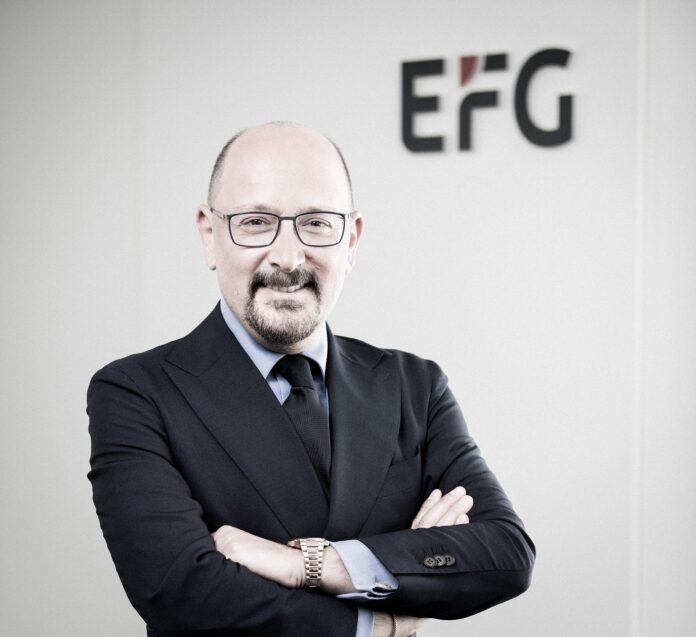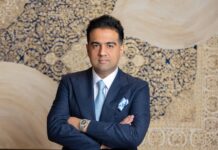The Middle East is rapidly becoming a thriving center for high net worth individuals (HNWIs). For instance, New World Wealth, a global wealth intelligence firm, reported an 18% rise in HNWIs in Dubai alone during the first half of 2022. Furthermore, the city is forecasted to join the top 20 wealthiest cities worldwide by 2030. This surge is fueled by the growth of domestic wealth and the migration of HNWIs from various parts of the world, drawn by new visa policies, free zones and favorable tax regimes. The region’s innovative private banking services offer a valuable resource for regional HNWIs to grow their wealth.
Buoyant and resilient economies
While many countries face low growth, high inflation and interest rates, ME economies are performing well due to high oil prices, real estate booms and growing industrial and telecommunications markets. Economic liberalisation and government investment in infrastructure and non-oil sectors is also driving growth, boosted by financial markets development in freezones such as the Dubai International Financial Centre (DIFC) and the Abu Dhabi Global Market (ADGM). Wealthy business leaders, owners and entrepreneurs increasingly look to private banking services who can harness thriving regional wealth opportunities.
Growing Islamic finance sector
According to financial tech firm, Refinitiv, the Islamic finance sector is worth almost US$4 trillion; and increasing numbers of wealthy clients in the ME are seeking Shariah-compliant financial products and private banking expertise. For example, according to Fitch ratings agency, in the first quarter of 2022, Islamic financing in the United Arab Emirates (UAE) grew at a higher rate (6%) than conventional finance (2%).
Environmental, Social and Governance (ESG) investment
ME-based HNWIs are increasingly seeking ESG-compliant and sustainable financial solutions, as the region diversifies away from oil and gas. According to GlobalData’s report on Energy Transition in the Middle East 2022, regional oil-fired power is forecast to decline 30% next decade due to the transition to lower-carbon fuels. As a long-term trend, the region’s HNWIs are looking to invest in sustainable solutions that protect their legacy for future generations. Private banks offer key sources of advice on ESG investment in the ME.
Diversification and internationalisation
Volatility was a defining feature of both bond and equity markets in 2022. As a result, ME-based HNWIs are seeking to diversify into international investments and long-term alternative strategies such as investment in infrastructure, transport and private equity. As ME HNWIs move beyond local investments, private banks will prove critical in ensuring they get the best global strategy and investment advice.
Increasing taxation
In 2022, the UAE announced its first-ever corporate taxes, set to start in June 2023. This marks a significant policy shift for a country that has traditionally attracted international businesses seeking tax-free commerce. The rate will be 9% for taxable income exceeding 375,000 UAE dirhams ($102,000). Though this is low compared to Western economies, it means that HNWIs increasingly need private banking expertise to incorporate changing tax strategies into their wealth planning.
Active private equity market
While global deal activity has flatlined, the ME has enjoyed high levels of inbound and outbound investment. Private banks can help HNWIs access new opportunities in growth sectors such as technology, healthcare, industrials, tourism and consumer goods. According to international law firm DLA Piper, most private capital in the ME is held by sovereign wealth funds (48%) which have been particularly active, as well as national and investment banks (33%).
Attracting tech start ups
Government (and Sovereign Wealth Fund) efforts to invest in technology are creating new generations of digital entrepreneurs. The ME is luring high-growth technology companies, with $3.94 billion invested in tech startups in 2022, according to venture capital firm Wamda. Private banks are increasingly called upon to advise fast-growth companies and their founders.
Given the wealth, vibrant economies and political and economic transformation in the region, the region looks set to become one of the globe’s key financial centres and private banking hubs, attracting senior financial professionals from around the globe. This presents HNWIs with a significant opportunity to harness world-leading expertise on their doorstep, protect and grow their wealth.











